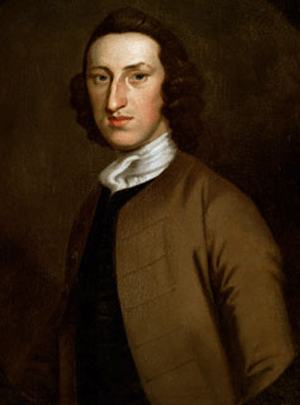William Livingston served as the first Governor of New Jersey during the American Revolutionary War and was a signer of the United States Constitution.

After studying law and being admitted to the bar, Livingston moved to Elizabethtown, today Elizabeth, New Jersey, where he built a large country home. The house, known as Liberty Hall, still stands today. He was elected to serve as one of New Jersey's delegates to the First Continental Congress, as well as in the Second Continental Congress. His legal and literary abilities made him an effective shaper of public opinion. In a particularly crucial moment in the fortunes of the Patriot cause, he won popular support for the declarations and decisions of these revolutionary bodies.
He was an outspoken supporter of American Independence and served during the Revolutionary War as a brigadier general in the New Jersey state militia. In 1776 he resigned from the military, and returned to his political career. After the ratification of the state's first constitution, Livingston was elected governor. He won reelection to fourteen consecutive one-year terms. During his tenure, war issues were dealt with, the state government was established, and antislavery measures were promoted. Livingston also served as an influential member of the 1787 U.S. Constitutional Convention, and was instrumental in securing New Jersey's speedy ratification.